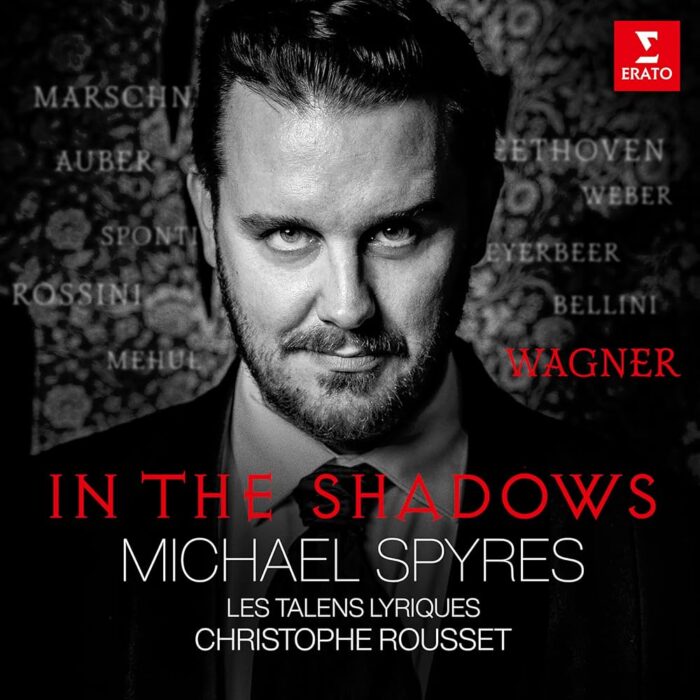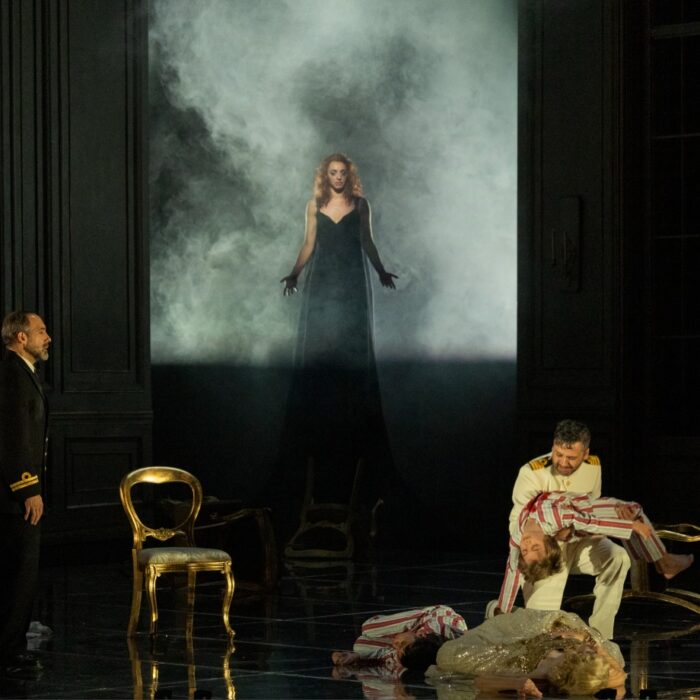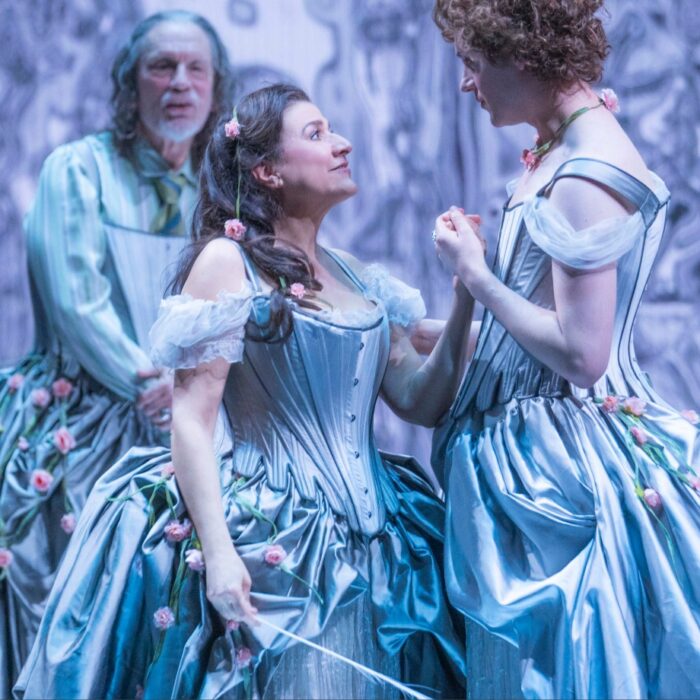
WQXR Greene Space 2018 Review: La Belle Chanson
Nick Phan Explores La Belle Époque in Exciting Program
By Jennifer PyronThis review is for the performance on Wednesday, June 27th.
Listeners reveled in an evening dedicated to Paris’ La Belle Époque period during a special performance aired live at WQXR Classical Radio Station’s Greene Space. The show featured the highly praised tenor Nick Phan, singing Fauré’s “La Bonne Chanson,” and other musical settings of Paul Verlaine’s poetry by Debussy, Renaldo Hahn and Leo Ferré. Excerpts from biographies written by Edmund White and Stefan Zweig were also read throughout the evening, which showcased a blue print of the love affair between Verlaine and a young Arthur Rimbaud.
La Belle Époque (“Beautiful Era”) was a period dating from 1871 to the beginning of World War I in 1914, where Europe was at peace and the arts thrived. This was also the same period in which Verlaine created his most praised work and excelled as a poet; sought by several composers.
Phan explained to the listeners more about this era, as he stood in the middle of a string quartet on the Greene Space stage.
“Paris teemed with an artistic life that flooded the salons of the city’s wealthiest elite, as well as the city’s nightclubs and bars. Among the many notorious genius characters who floated between both worlds, philosophizing on aesthetics and expression were the poets Rimbaud and Verlaine. Verlaine’s poetry, in particular, was especially influential upon many composers – his poetry has perhaps been set to more music than that of any French poet,” said Phan.
He then read an excerpt from White’s biography, “Rimbaud The Double Life of a Rebel,” that further told listeners about Verlaine’s private life.
“Verlaine, as it turned out, was a homicidal alcoholic. He was also an extremely gentle, sensitive poet with a distinctive tone and a remarkable musicality. These two aspects of his character set up a pitched battle over his anguished destiny; he would always be susceptible to one impulse or another,” wrote White.
“La Bonne Chanson”
Phan told the audience about the impact that Fauré’s “La Bonne Chanson” had on the history of music, just before performing the song cycle, and read an excerpt from Zweig’s book, “Paul Verlaine.”
“Verlaine wrote the slender volume of songs, ‘La Bonne Chanson.’ It is his most quiet and balanced book. According to his own repeatedly expressed opinion, he considered it the most beautiful of his works and the one dearest to him. In the best and noblest sense they are ‘occasional verses.’ Almost daily one is written and sent to his beloved. Here the idea of modesty subdues passion like a wonderful sordine, and surrender and tenderness intertwine with the ideals of modesty. The cleft in Verlaine’s personality closes in the consonance of a soul which has found peace. It represents the first period of peace in his life and career and is humanly his most perfect moment and poetically his purest. Vice and passion have disappeared in a hesitating yet desirous surrender, melancholy has dissolved in melody,” wrote Zweig.
Phan’s voice was full of wonder and excitement as he sang “La Bonne Chanson.” He had a graceful approach to musical phrasing and created tender moments in the music with a clear and luscious tone. Phan’s performance of “La lune blanche,” the third song in Fauré’s cycle, highlighted his gift for story-telling, as he used his voice to paint an ethereal scene of the white moon, as it hung in a soft sky, while shining down on the lovers below.
Verlaine Meets Rimbaud – A Love Story Unfolds
Verlaine’s life as a husband and writer took a wild turn when he met Rimbaud in 1871, one year after he married his wife Mathilde.
“The beginning was conventional. One day Verlaine received a letter from an acquaintance in the provinces, in which poems by a 15-year-old boy were enclosed. Verlaine’s opinion was asked…Everyone knows they were Rimbaud’s, for the poems of this boy are among the most precious of French literature. Verlaine read them and was filled with enthusiasm. He wrote to the boy in a tone of glowing admiration. In the meantime the poems made the rounds in Paris. He was declared to be ‘Shakespeare enfant,’” wrote Zweig.
Verlaine pursued further conversation with Rimbaud, who was on the rise as a profound young poet, and eventually had him come stay with him. The two shared an unconventional bond that blossomed into a passionate love affair, soon to be tainted with addiction, anxiety and insatiable eroticism.
Despite the highs experienced in this relationship with Rimbaud, Verlaine was afflicted with depression and alcoholism, which led to a dangerous downward turn in his life.
Phan read another excerpt from White’s biography that explained more: “One thing is certain: he was beset by strong homosexual desires but hated his ‘vice’ and longed to be rid of it. In Verlaine’s mind, this struggle was staged as a contest between bourgeois calm and respectability on the one hand, and on the other hand the lurid but exciting depths of bohemian depravity,” wrote White.
Verlaine and Rimbaud’s Poetry On The Rise
“Les chercheuses de poux,” by Leo Ferré, was based on a poem written by Rimbaud that illustrates his profound imagination. Phan sang this piece with a flare of “je ne sais quoi” that eloquently communicated Rimbaud’s story, while the string quartet played along in a whirl of splendor, which elevated the evening’s sophisticated musicality.
Benjamin Britten’s “Phrase” and “Antique,” the third movement of his song cycle “Les Illuminations,” highlighted Phan’s dance-like mobility in his voice. His insight of knowledge based on Rimbaud’s poetry created intelligent textual phrasing and raised the bar of the night’s entire performance.
And as the evening’s story-telling alluded to a close, it remained obvious that Verlaine and Rimbaud would still be intertwined in some way because of their interconnectedness and underlying fondness of one another.
Phan ended the transcending showcase by singing portions of Debussy’s “Ariettes oubliées,” and Hahn’s “L’heure exquise.” Listeners all over savored these final pieces and through this experience could imagine how it must have felt to be present during the celebration of “La Belle Époque.”


